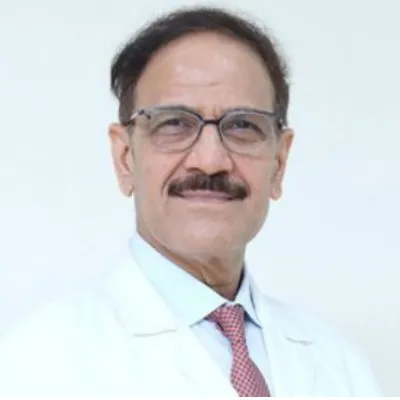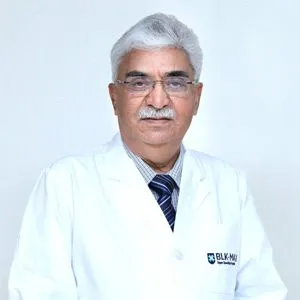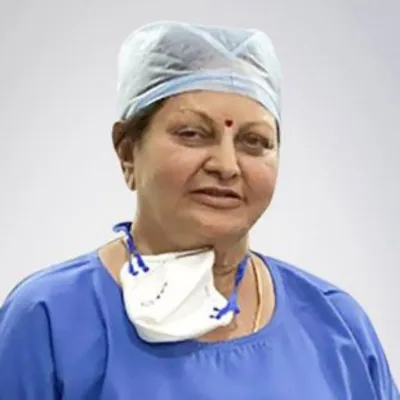Best Orthopedic Surgeons in Artemis Hospital Gurgaon
 17 December,2025
Read More
17 December,2025
Read More
Starting From: USD 4,210 - USD 6,977
Robotically Assisted Removal of Cardiac Tumors is affordable in India. The cost of Robotically Assisted Removal of Cardiac Tumors in India lies between USD 4,210 - USD 6,977. The exact procedure price depends on multiple factors such as the surgeon's experience, type of hospital, severity of the condition, patient's general condition,�etc.
The presence of tumors within the heart, though rare, can pose significant health risks and necessitate surgical intervention. The conventional approach to removing cardiac tumors involved open-heart surgery, which often required large incisions and prolonged recovery times. However, with the advent of robotic technology, cardiac surgeons now have a groundbreaking tool at their disposal. Robotically assisted removal of cardiac tumors combines the skill and expertise of surgeons with the precision and capabilities of robotic systems, revolutionizing the field of cardiac surgery and offering patients a minimally invasive alternative with enhanced outcomes.
Cardiac tumors can be either benign or malignant growths that develop within the heart or its surrounding structures. While malignant tumors are relatively rare, benign tumors can still cause significant health issues depending on their location and size. Common types of cardiac tumors include myxomas, fibromas, lipomas, and rare malignant tumors like sarcomas.
Traditionally, the removal of cardiac tumors necessitated open-heart surgery with a median sternotomy, which involves a large incision down the center of the chest. While this approach was effective, it often resulted in substantial tissue trauma, extended recovery periods, and increased risk of post-operative complications.
Robotically assisted removal of cardiac tumors represents a paradigm shift in cardiac surgery. This innovative technique employs specialized robotic systems, comprising miniature instruments and a high-definition camera. These instruments are precisely controlled by the surgeon from a console within the operating room, providing a magnified, three-dimensional view of the surgical field.
The selection of candidates for robotically assisted removal of cardiac tumors involves a comprehensive evaluation by the cardiac surgical team. While this approach offers significant benefits, it may not be suitable for all patients. The best candidates for robotically assisted removal of cardiac tumors typically exhibit the following characteristics:
It's important to note that the final determination of a patient's suitability for robotically assisted removal of cardiac tumors is made after a comprehensive evaluation by the cardiac surgical team, taking into account the specific details of the individual case. Alternative treatment options, such as traditional open-heart surgery or other minimally invasive approaches, may also be considered depending on the patient's unique circumstances.
While robotically assisted tumor removal offers significant advantages, not all cases may be suitable for this approach. The decision to opt for this procedure is made after a thorough evaluation by the cardiac surgical team, considering factors such as the specific type and location of the tumor, the patient's overall health, and the surgeon's expertise.
As with any surgical procedure, there are potential risks associated with robotically assisted tumor removal, including bleeding, infection, and adverse reactions to anesthesia. Additionally, while rare, there may be specific risks related to the use of robotic technology.
Robotically assisted removal of cardiac tumors represents a monumental advancement in the field of cardiac surgery. By integrating advanced robotic technology with the proficiency of cardiac surgeons, this procedure provides patients with a highly effective and minimally invasive approach to treating cardiac tumors. As this technology continues to evolve, it is poised to play an even greater role in the future of cardiac care, further enhancing surgical outcomes and benefiting patients worldwide.

Chairman
Interventional Cardiologist
BLK-Max Super Speciality Hospital, New Delhi

Director
Cardiologist, Interventional Cardiologist
Max Super Speciality Hospital, Saket, New Delhi

Chairman
Cardiac Electrophysiologist, Interventional Cardiologist
BLK-Max Super Speciality Hospital, New Delhi

Consultant
Interventional Cardiologist
Indraprastha Apollo Hospital, New Delhi

Head of Department (HOD)
Cardiologist
Nanavati Super Specialty Hospital, Mumbai

Consultant
Interventional Cardiologist
Apollo Hospital Chennai, Greams Road
Doctor of Pharmacy
Dr. Deepanshu Siwach is a skilled clinical pharmacist with a Doctor of Pharmacy degree.?He has 4+?years of experience and has worked with thousands of patients. He has been associated with some of the top hospitals, such as Artemis Gurgaon.
Dr. Deepanshu Siwach is a skilled clinical pharmacist with a Doctor of Pharmacy degree.?He has 4+?years of experience and has worked with thousands of patients. He has been associated with some of the top hospitals, such as Artemis Gurgaon....
Dr. Aseem Ranjan Srivastava is an experienced Pediatric Cardiothoracic Surgeon specializing in Minimal Access and Robotic Cardiac Surgery. He strongly recommends prompt corrective repair when possible....
The Art of Effective Communication
 17 December,2025
Read More
17 December,2025
Read More
 16 December,2025
Read More
16 December,2025
Read More
 10 December,2025
Read More
10 December,2025
Read More
 09 December,2025
Read More
09 December,2025
Read More
 05 December,2025
Read More
05 December,2025
Read More
 04 December,2025
Read More
04 December,2025
Read More